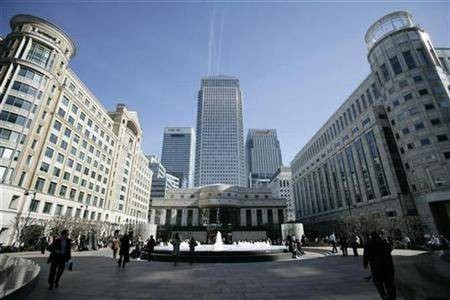Mis-Selling Derivatives: Bank Agrees to First IRSA Redress Payouts
EXCLUSIVE: One of Britain's biggest banks delivers positive first set of redress offers for SMEs

One of Britain's biggest banks has begun to deliver the first round of refunds to small-to-medium enterprises that were mis-sold interest rate derivatives.
In a major step for businesses hoping to gain redress for being mis-sold interest rate swap agreements (IRSAs), IBTimes UK can exclusively reveal that one of the UK's largest banks, which cannot be named at this stage, has offered to cancel the financial product and refund all payments made to date through an agreement with the regulator.
Under the principles of the Financial Services Authority (FSA) agreement with the banks to determine whether mis-selling took place, at least one SME was granted a full refund of all payments made on the swap and any extra interest incurred during the period of payment, after being mis-sold structured collar swap.
A structured collar product is one of the more complicated types of IRSA and is designed to allow a customer to hedge exposure to interest rate fluctuations within a specified range. It still leaves the business vulnerable to interest rate movements.
In addition, the business was allowed to break the contract by exiting the financial product early with no breakage costs. Breakage costs have ranged in average from £500,000 upwards for thousands of businesses around the country.
"Bully-Banks [the lobby group working for SMEs who have fallen victim to mis-selling] can confirm that the first offers of redress have been received by a small number of SME customers who participated in their banks' pilot study claiming that they have been mis-sold IRSAs," said Jeremy Roe, Bully-Banks founder.
"Offers have gone out from more than one bank. The first impressions from SME customers who had structured collars are encouraging.
However, there are yet to be examples of businesses being granted 'consequential losses' compensation - the amount of losses a business incurred as a result of taking out the financial product - and how the SME's ongoing banking relationship will fare.
Sources close to the offer confirmed details of the redress deal but only on condition of anonymity.
IRSAs are contracts between a bank and its customer where typically one side pays a floating, or variable, rate of interest and receives a fixed rate of interest payments in exchange. They are used to hedge against extreme movements in market interest rates over a given period.
Companies that have seen the value of these products move against them as rates fell during the recession now owe banks crippling sums of money in interest payments each year.
But if the businesses want to cancel the contracts, they are faced with higher costs.
At the end of June 2012, the FSA, now renamed the Financial Conduct Authority (FCA), released its findings from a review that found that 40,000 IRSAs had been sold to customers. All cases will be investigated for potential mis-selling.
In its agreement with the banks, the FSA banned HSBC, Barclays, Lloyds and RBS from selling interest rate swaps to SMEs.
Under an agreement with the FCA, the banks are now in charge of leading investigations with the aid of independent reviewers overseen by the FCA.
The authority said that not all businesses would be owed redress. The exact amount to be paid out would vary from customer to customer and could include a mixture of cancelling or replacing existing products, together with partial or full refunds. The banks will be in charge of deciding the level of compensation for each customer individually.
However, there is no deadline for investigations and forms of redress.
At the end of January, a pilot scheme that examined the sale of 173 IRSAs to British firms found that at least 90 percent of them did not comply with at least one or more regulatory requirement.
Related Articles:
Mis-Selling Derivatives Scandal: UK Businesses Fight to Survive [VIDEO]
Mis-Selling Derivatives Q&A: Regulator Should Install Appeals Process [VIDEO]
Mis-Selling Derivatives Q&A: Guto Bebb MP Pushes for TBL Review Inclusion [VIDEO]
Mis-Selling Derivatives Exclusive: Barclays' Lawyers Accused of Breaching Code of Conduct
© Copyright IBTimes 2025. All rights reserved.






















